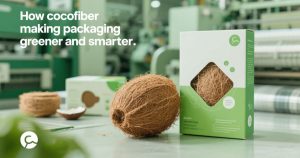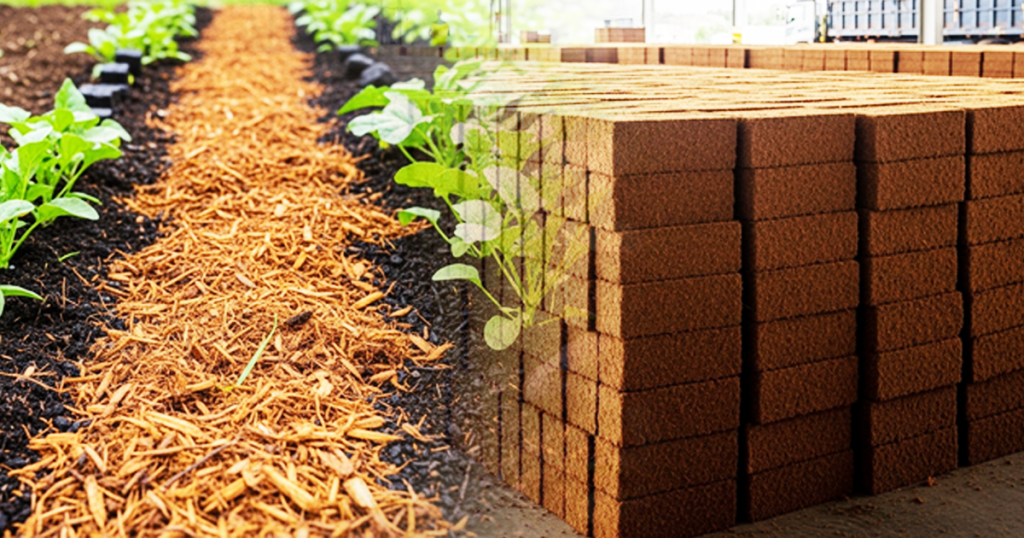Cocopeat Powder: Indonesia’s Sustainable Solution for Global Agriculture
As global agriculture leans toward sustainable practices, Indonesia has found an unlikely hero: cocopeat powder. Derived from coconut husk, this fibrous material has surged in popularity for its eco-friendly, cost-effective, and nutrient-retentive qualities. Once considered waste, cocopeat now plays a vital role in international horticulture and floriculture industries.
Indonesia, as one of the world’s largest coconut producers, is perfectly positioned to lead this green transformation. The country’s tropical climate and extensive coconut plantations allow for large-scale production without additional environmental burden. With rising global awareness about sustainable agriculture, cocopeat powder has become a key player in the export market.
Cocopeat is no longer just a byproduct it’s a strategic commodity. As a researcher immersed in its cultivation and processing, I have witnessed firsthand how this humble material is reshaping Indonesia’s role in agri-exports. Here’s a closer look at why cocopeat powder is becoming Indonesia’s next big export story.
Understanding Cocopeat Powder
What Is Cocopeat Powder?
Cocopeat powder, also known as coir pith or coir dust, is the fine, spongy material found between the coconut husk fibers. After extracting coir fibers for ropes and mats, the remaining dust is processed into cocopeat. When dried and compressed, it becomes a lightweight, sterile, and versatile growing medium.
Rich in lignin and cellulose, cocopeat naturally retains moisture and provides excellent aeration. These properties make it highly sought-after in hydroponics, seed germination, and potting mixes. Unlike peat moss, which is mined from wetlands, cocopeat is renewable and environmentally safe.
Indonesia’s processing facilities have improved significantly over the last decade. Advanced drying and sieving technologies now produce fine-grade cocopeat powder tailored to international standards. This shift has been instrumental in opening new export channels, especially to Europe and the Middle East.
Why Global Demand Is Rising
Several factors are driving the global appetite for cocopeat. First, the push for sustainable and organic farming practices favors renewable substrates like cocopeat over synthetic or mined alternatives. Second, its low EC (electrical conductivity) and pH balance make it ideal for delicate crops such as strawberries and lettuce.
Third, supply chain disruptions and environmental concerns over Canadian peat moss have led large agribusinesses to seek alternatives. Indonesia’s abundant supply and improving logistics infrastructure make it an attractive source. Buyers from India, the Netherlands, and the UAE have increased imports in recent years, pushing prices upward.
As countries implement stricter environmental regulations, Indonesia’s eco-compliant cocopeat becomes a competitive advantage. It’s not just about exports it’s about exporting sustainability.
Research and Innovation Drive Export Quality
Ongoing Studies Improve Cocopeat Performance
As a researcher, I’ve been involved in studies that enhance cocopeat’s physical and chemical properties. We’ve tested microbial inoculants to speed up the decomposition of residual tannins and lignin, which improves nutrient availability. Additionally, particle-size customization helps meet crop-specific requirements in hydroponic systems.
Collaborations between agricultural universities and industry have yielded patented techniques for washing, buffering, and drying cocopeat. These innovations reduce contaminants and improve shelf life, both essential for meeting export standards. Quality control has shifted from manual inspection to data-driven analysis using spectrometry and moisture sensors.
Our field experiments in Central Java show that crops grown on enhanced cocopeat outperform those on traditional soil substrates by 15–20% in yield. This empirical data is crucial in building confidence among international buyers and investors.
Indonesia’s Economic Potential Through Cocopeat
A Green Commodity with Strategic Value
Indonesia’s Ministry of Trade reports a steady increase in cocopeat export volumes over the last five years. In 2024 alone, exports grew by 18%, with revenue surpassing $150 million. This is more than just market growth it represents a shift toward high-value, sustainable commodities.
Exporters are now diversifying their products by offering cocopeat in powder, block, and disc forms. This flexibility attracts niche markets, including urban gardeners and commercial greenhouse operators. Moreover, government incentives such as tax relief and training programs are encouraging small producers to join the export ecosystem.
The future looks bright. With continued research, supportive policies, and market intelligence, Indonesia is poised to become the world’s leading supplier of premium cocopeat powder. It’s a green revolution, rooted in coconut husks.







